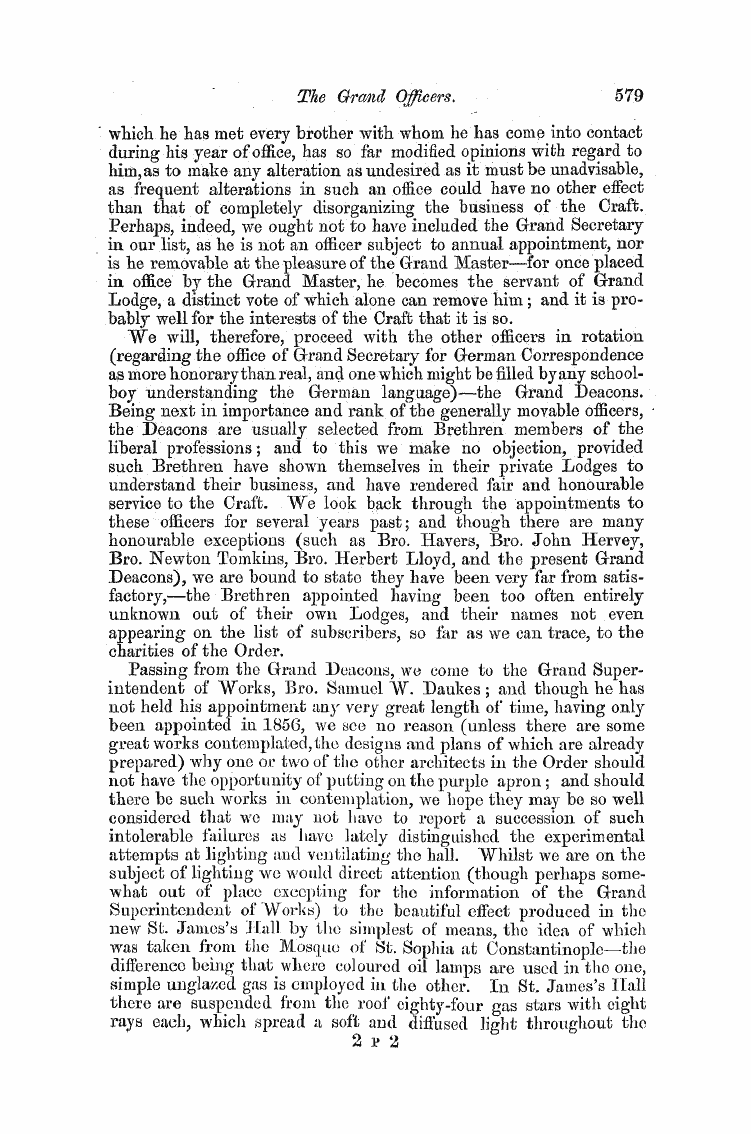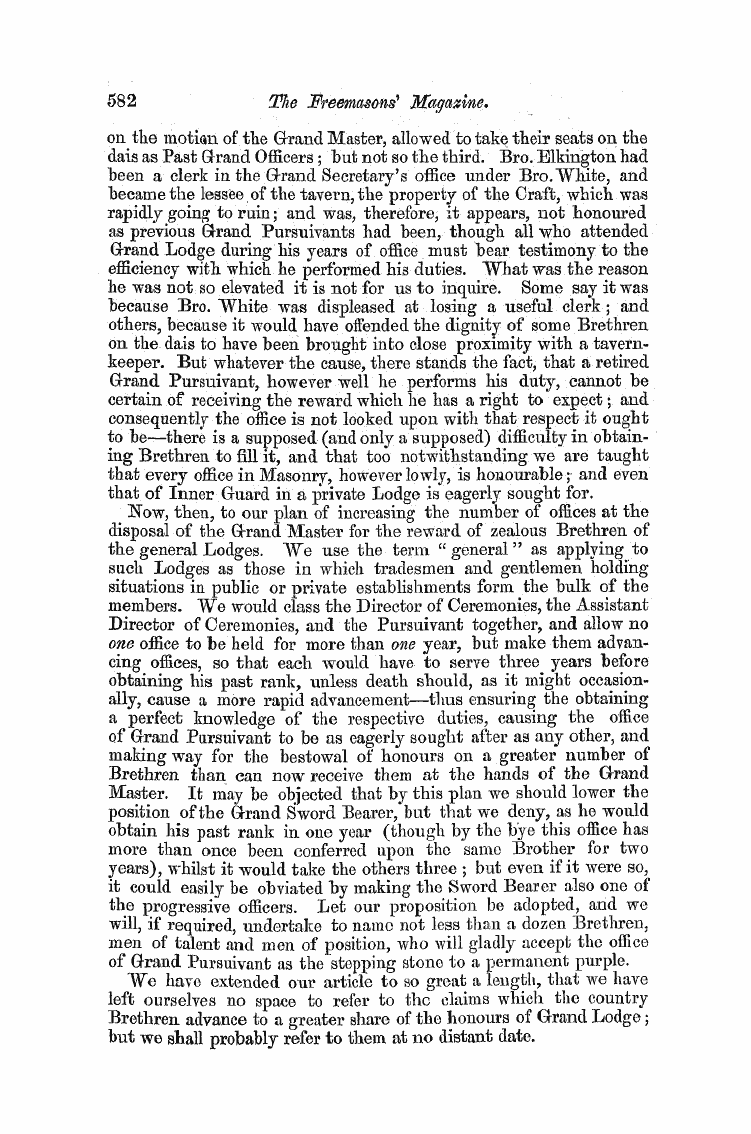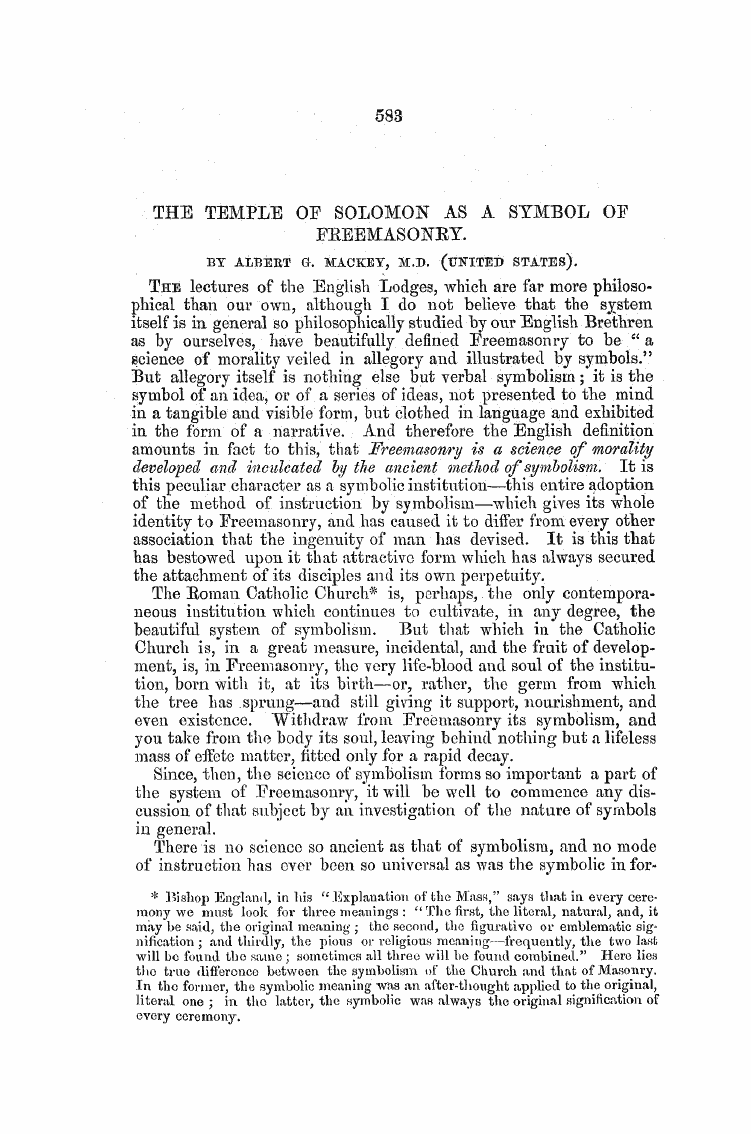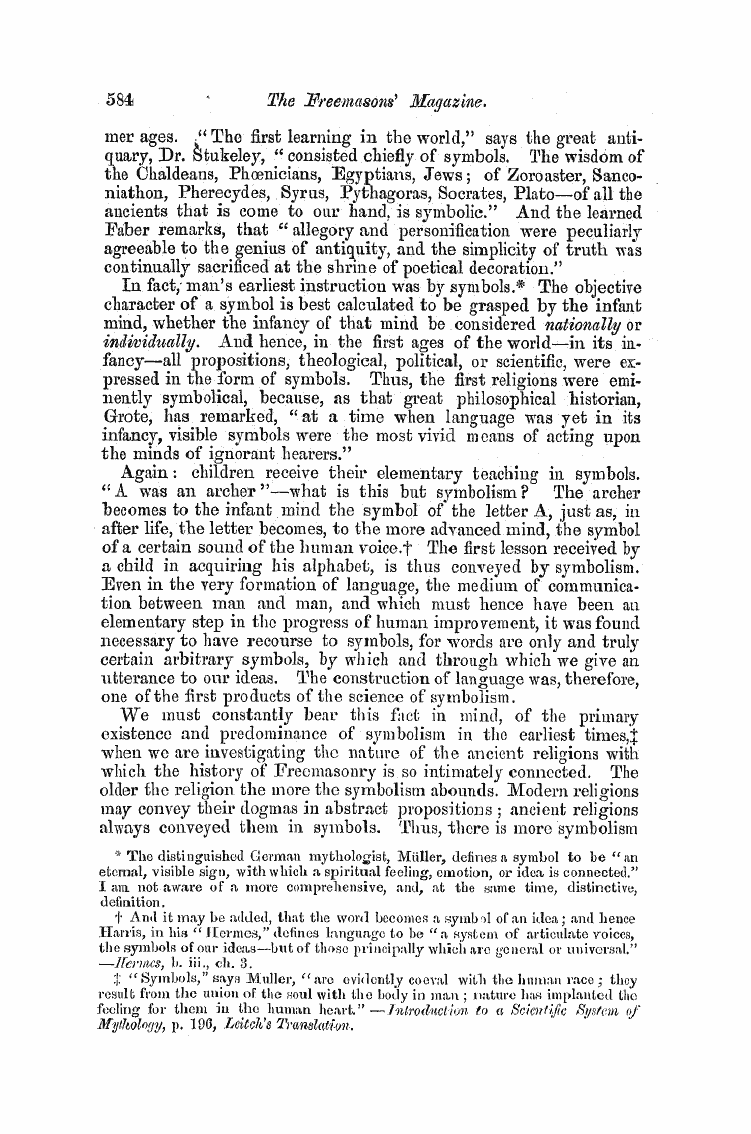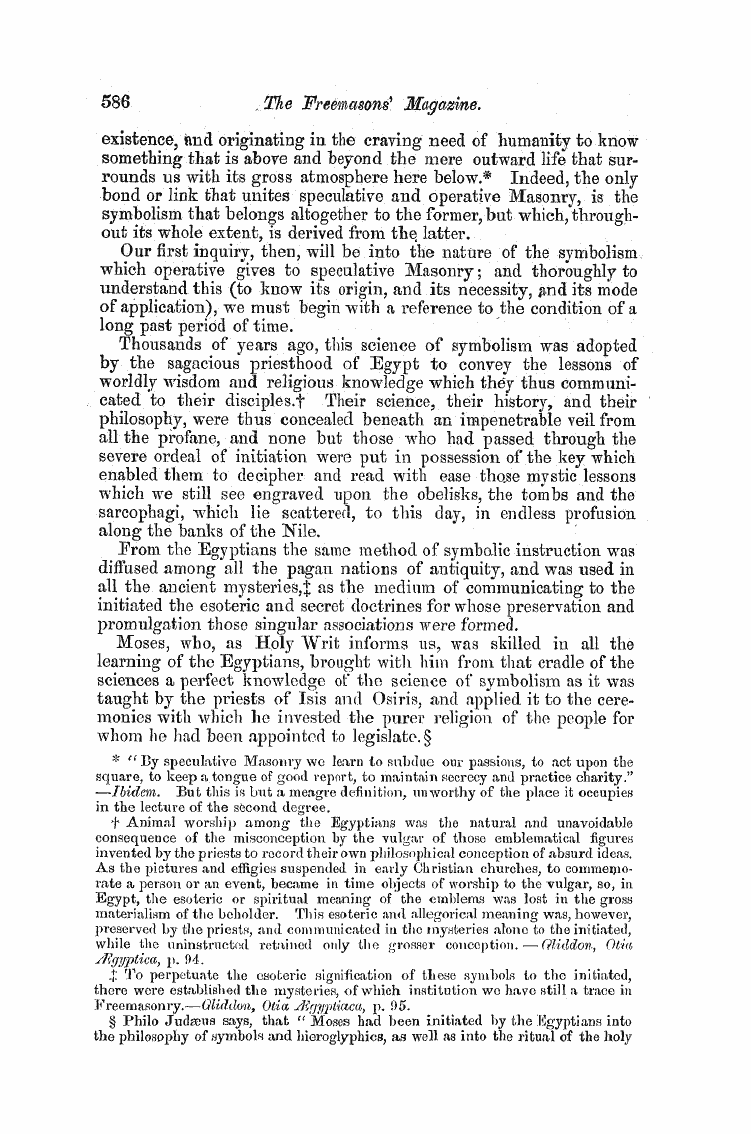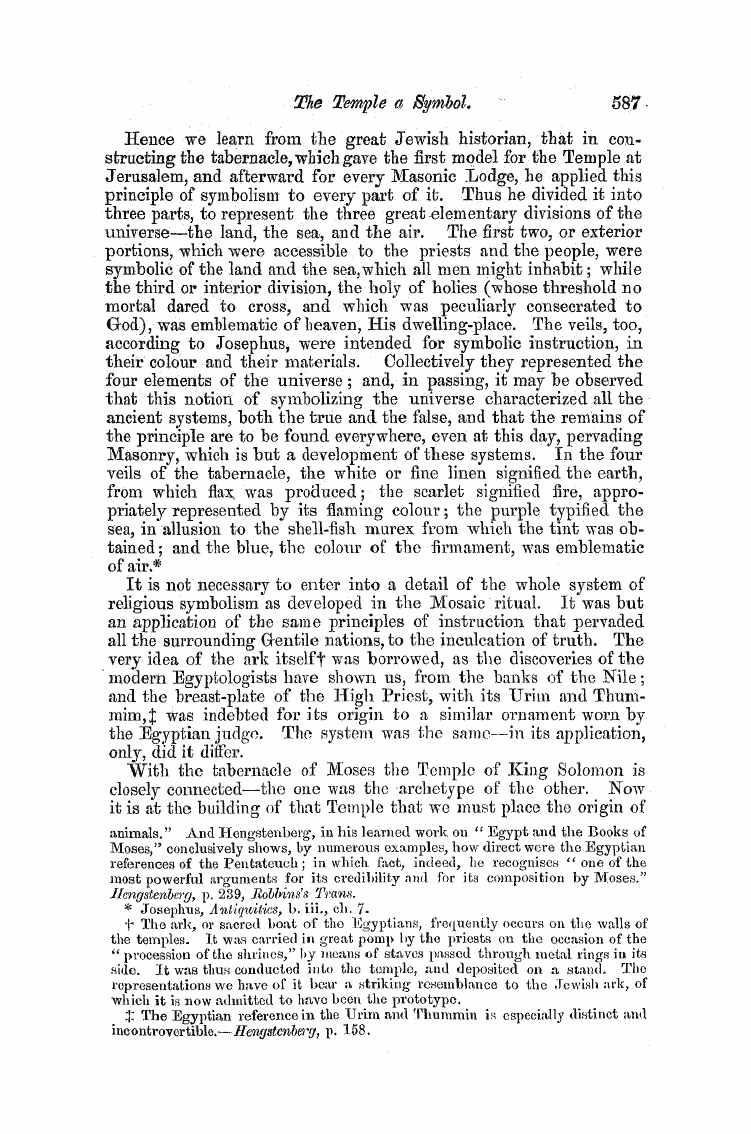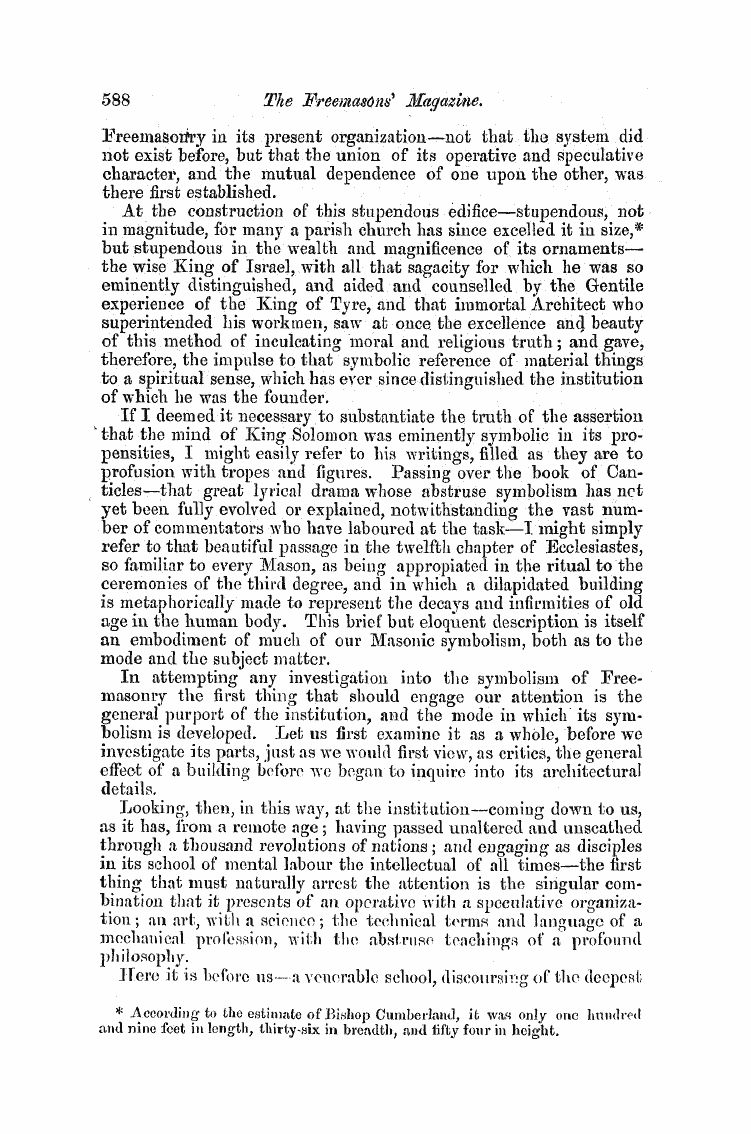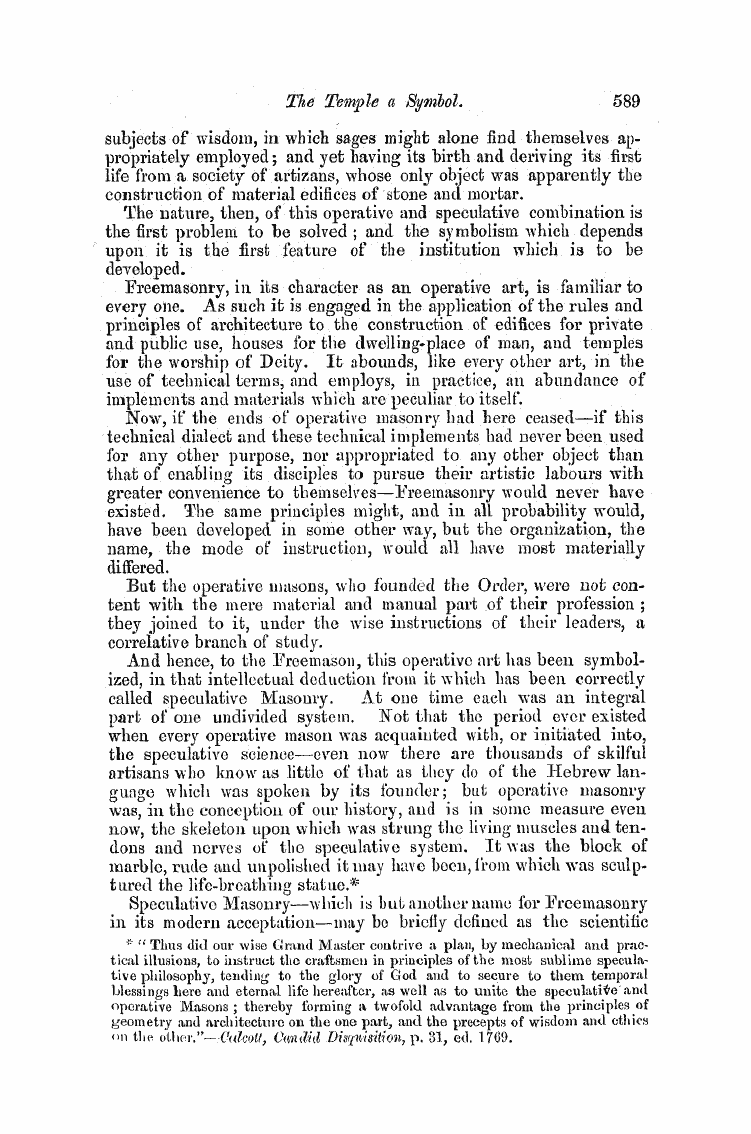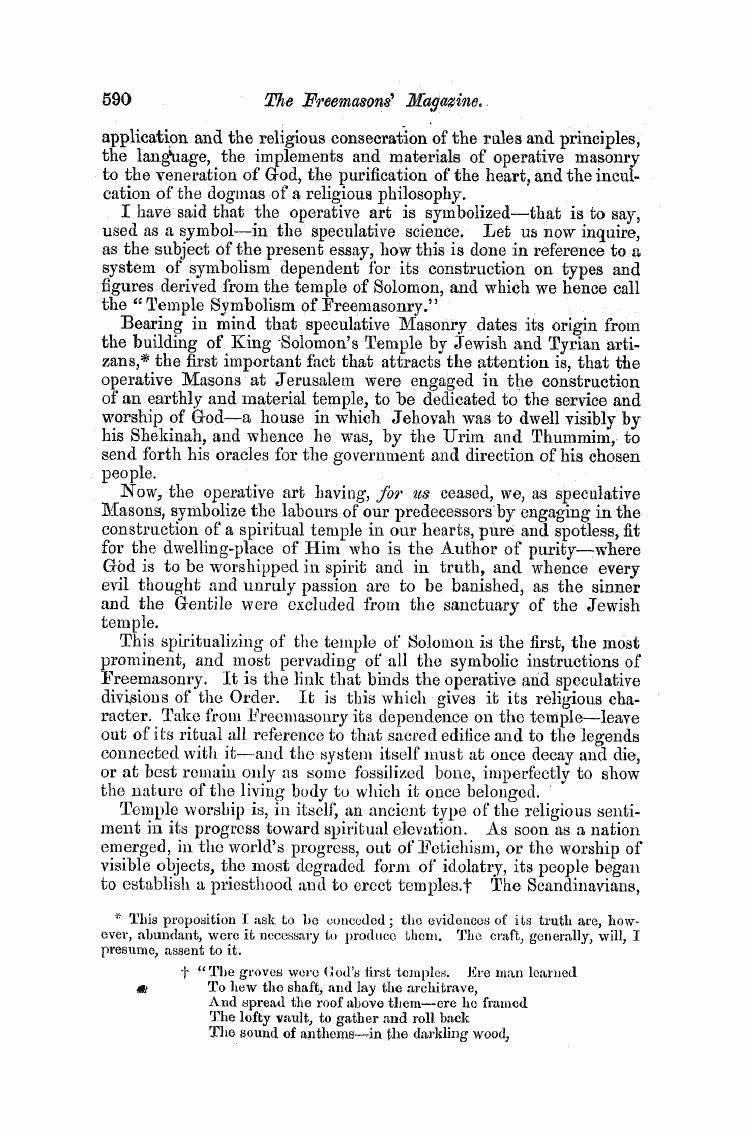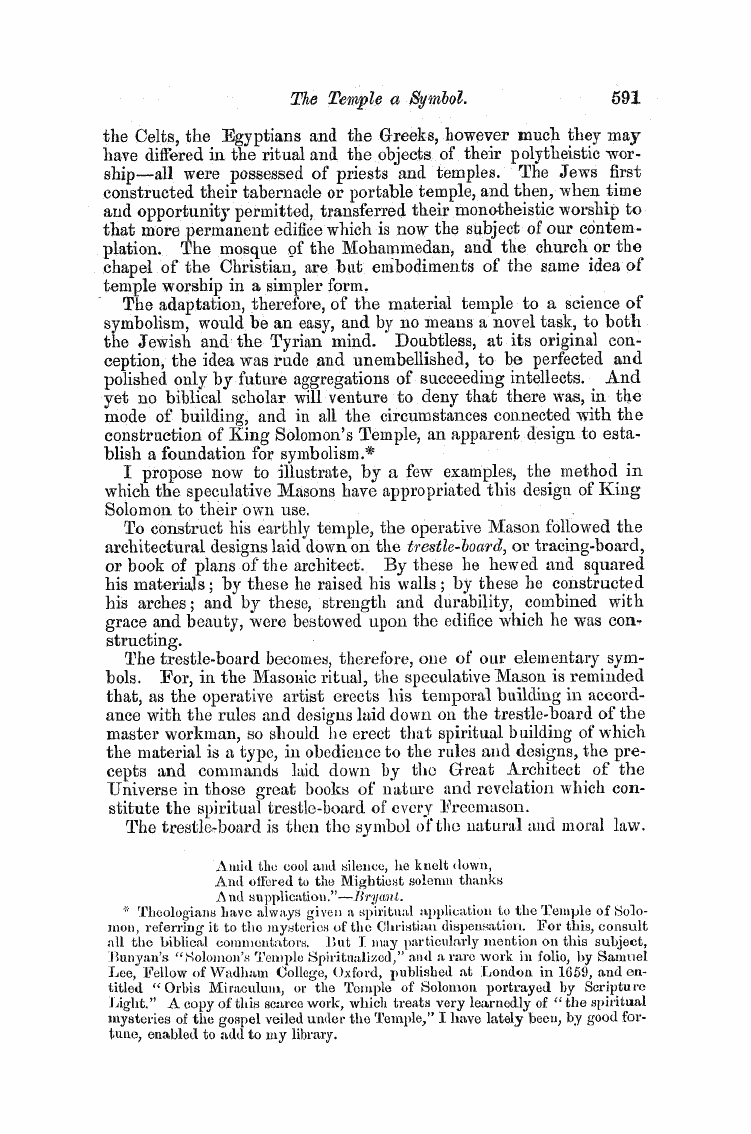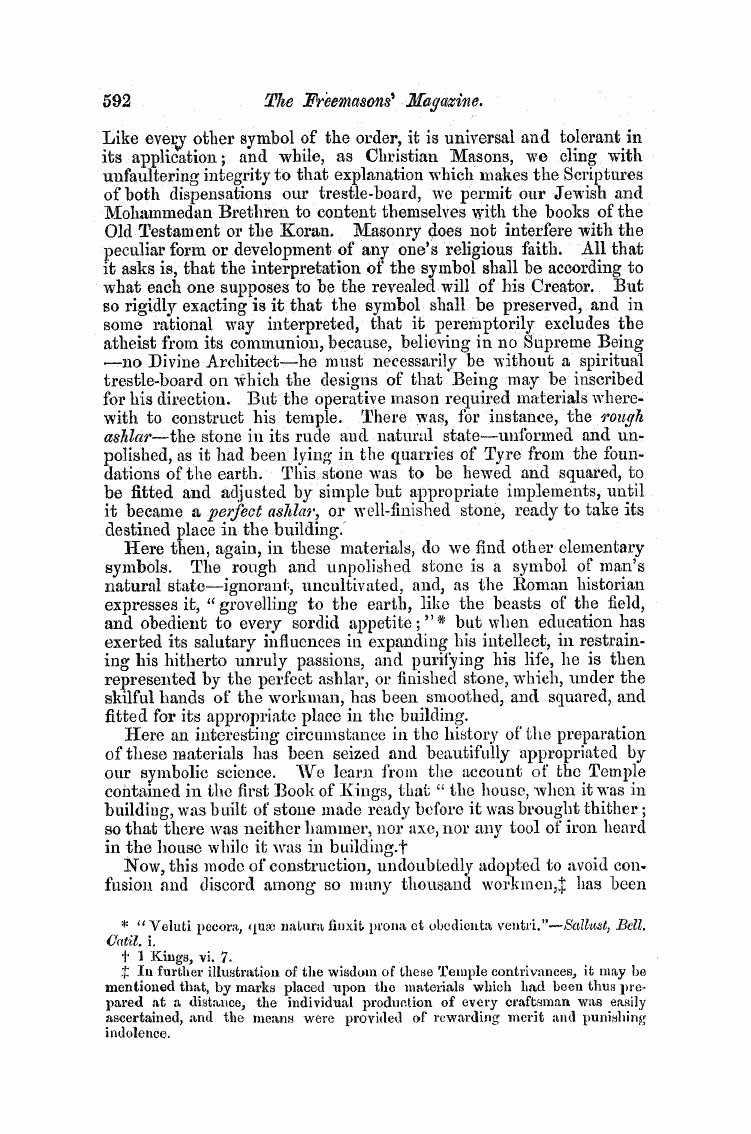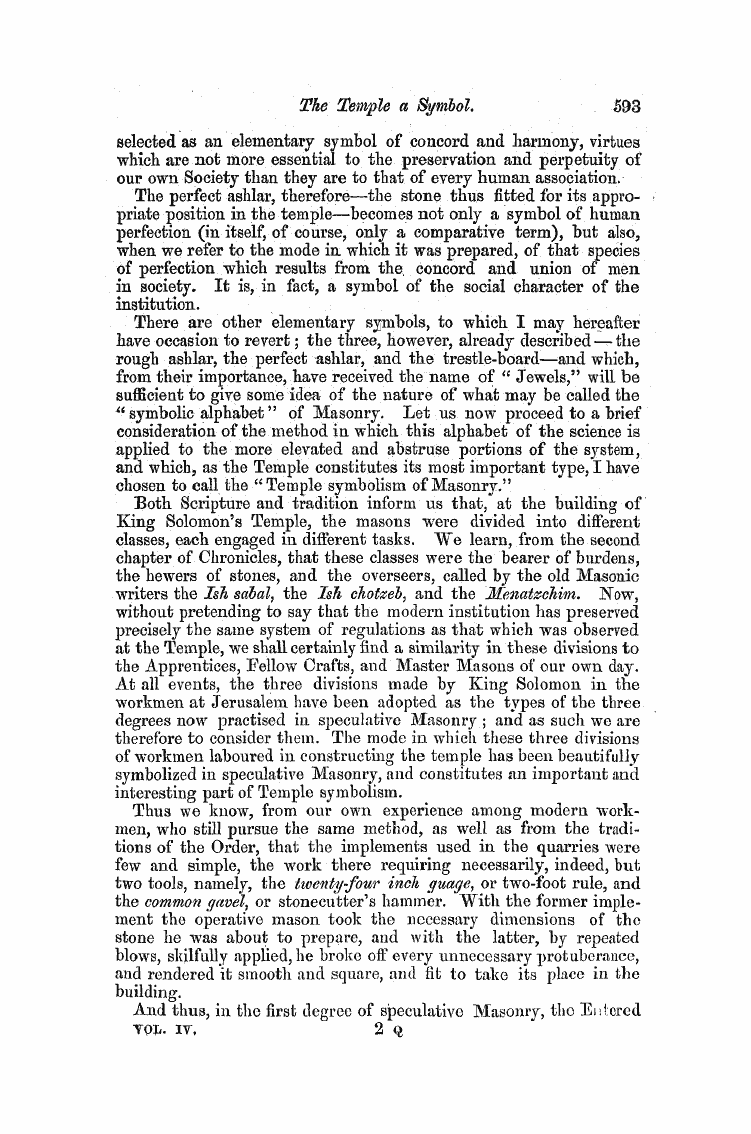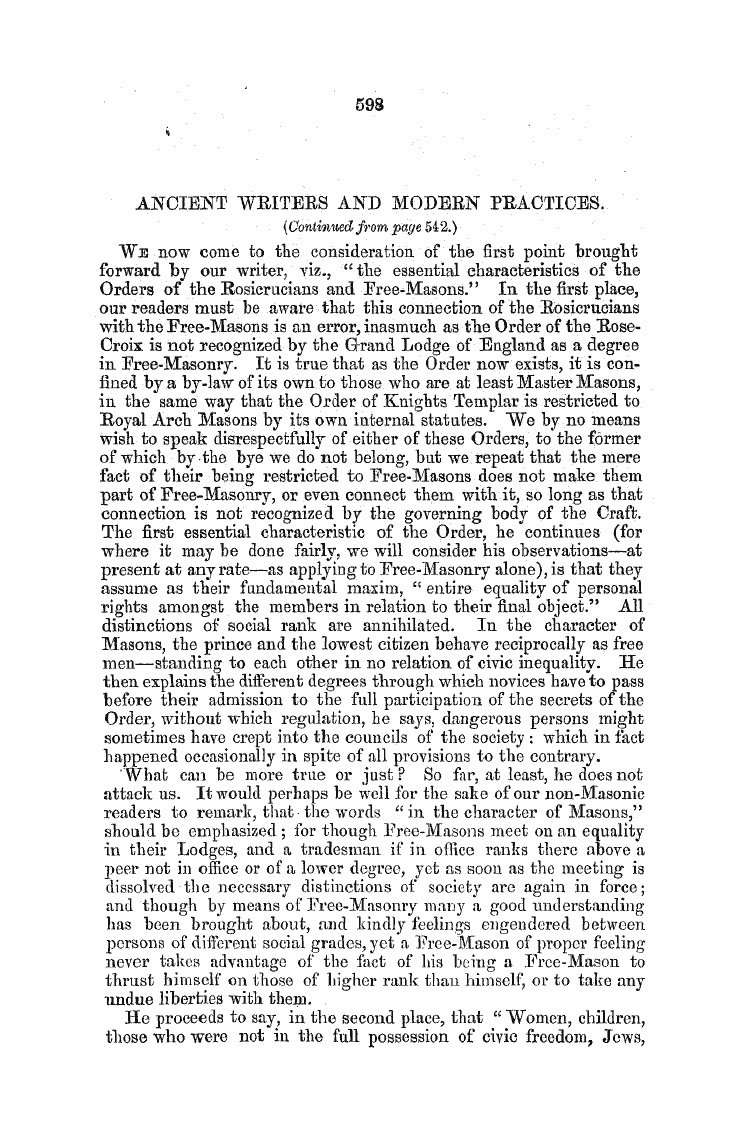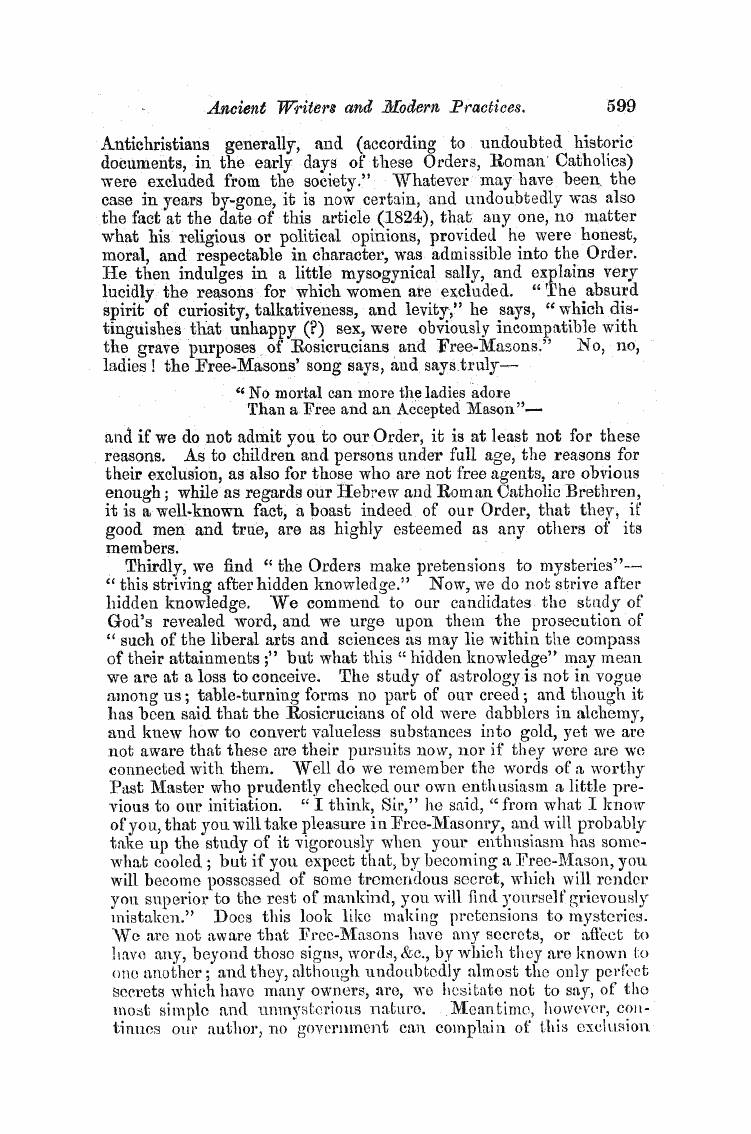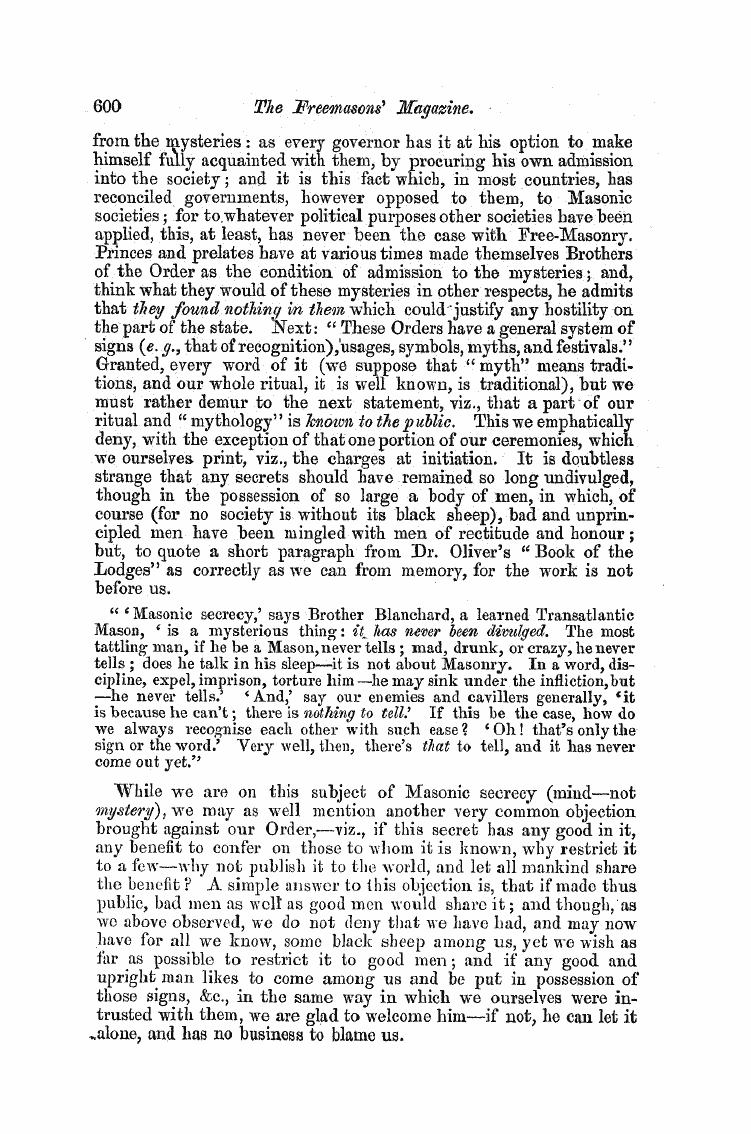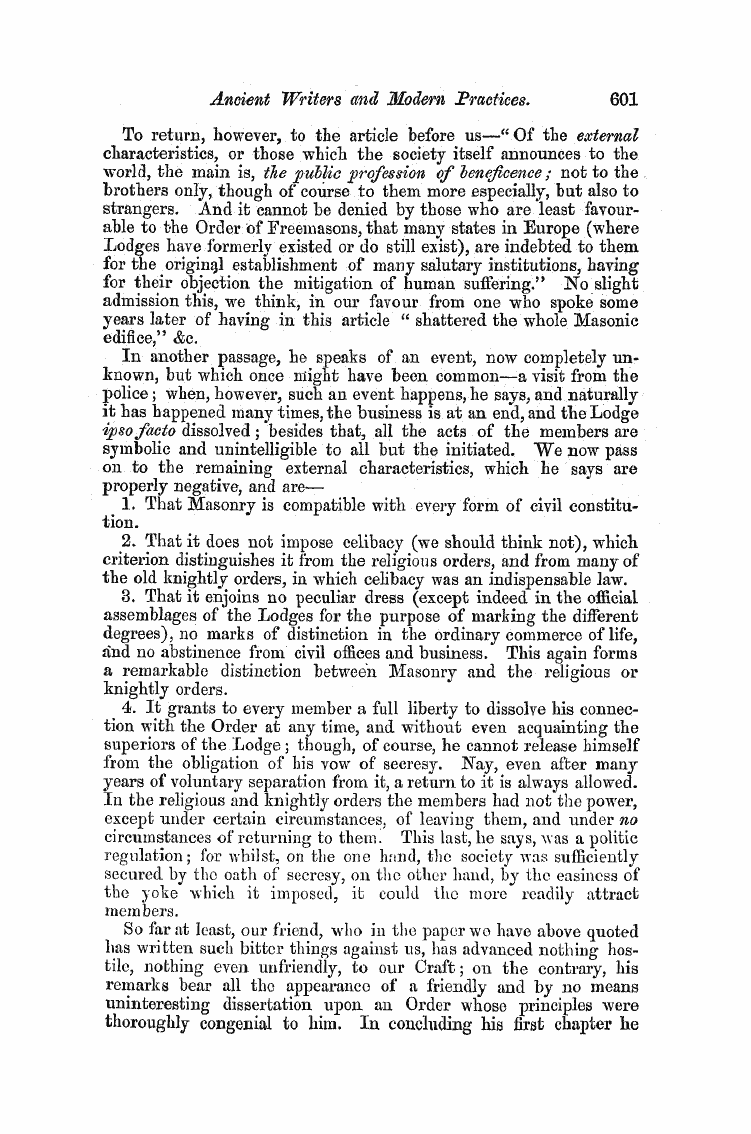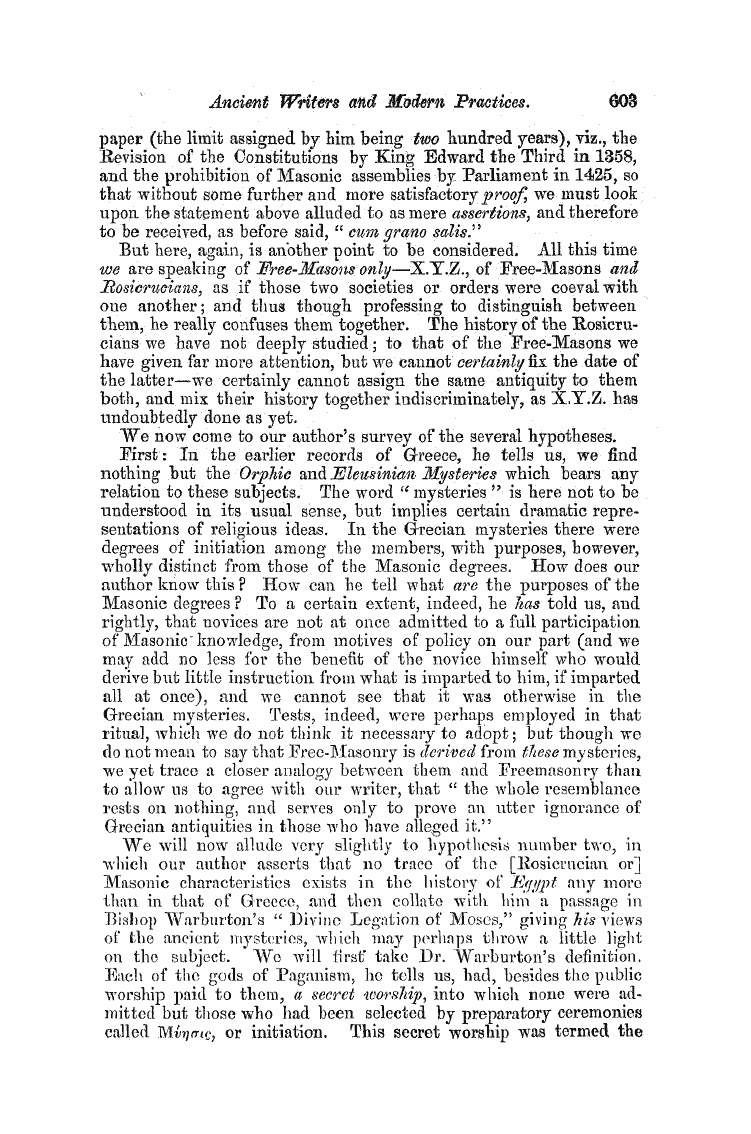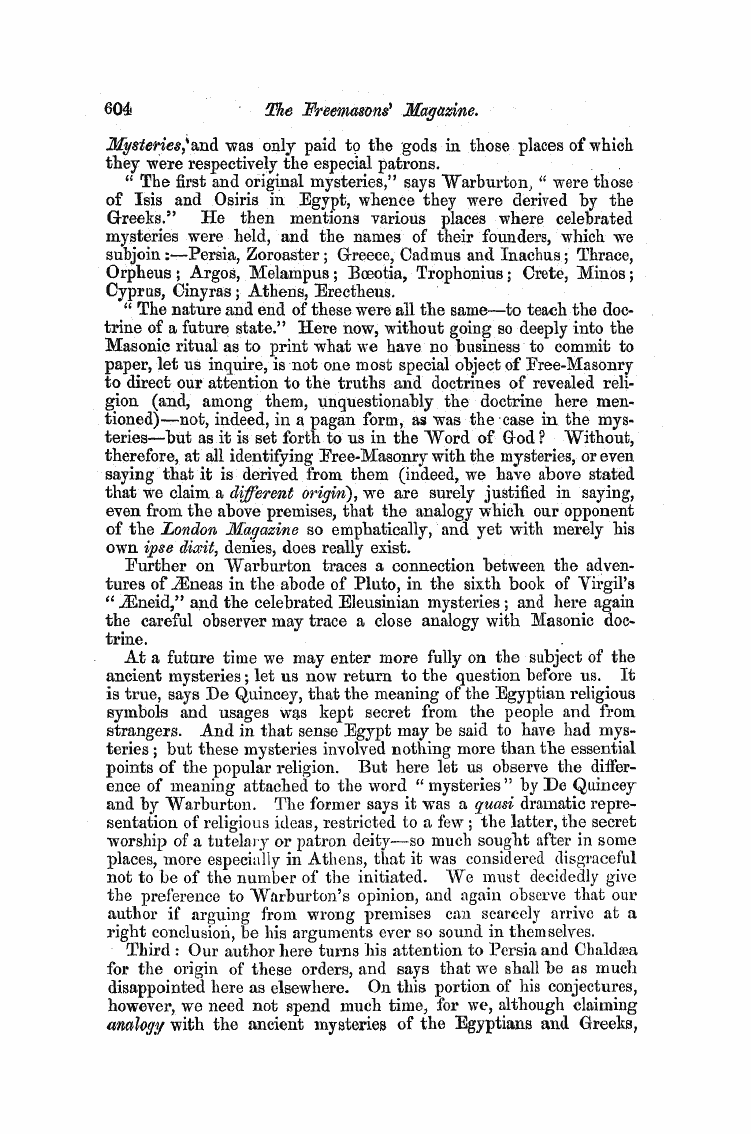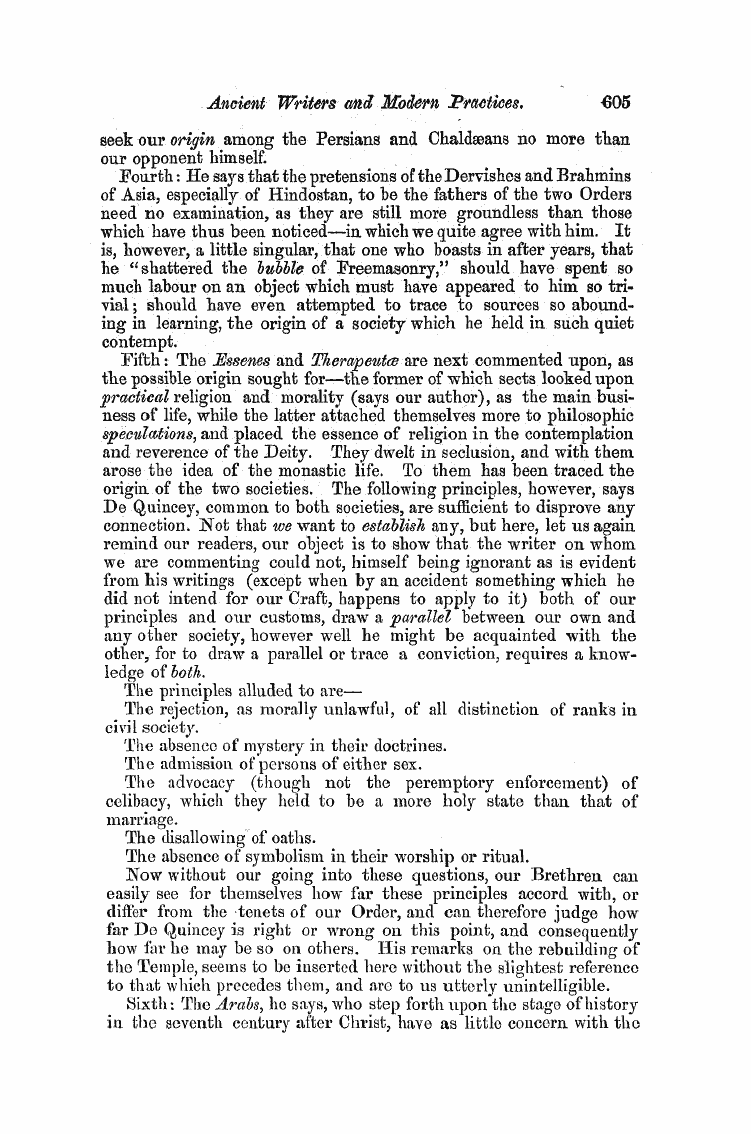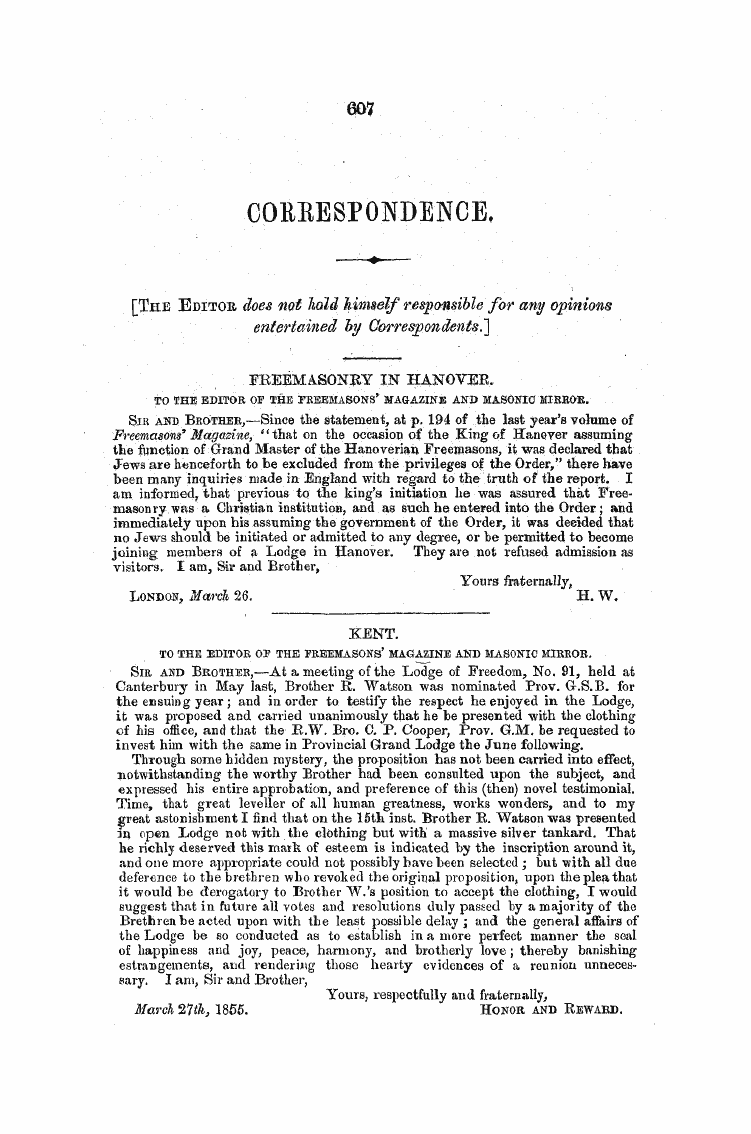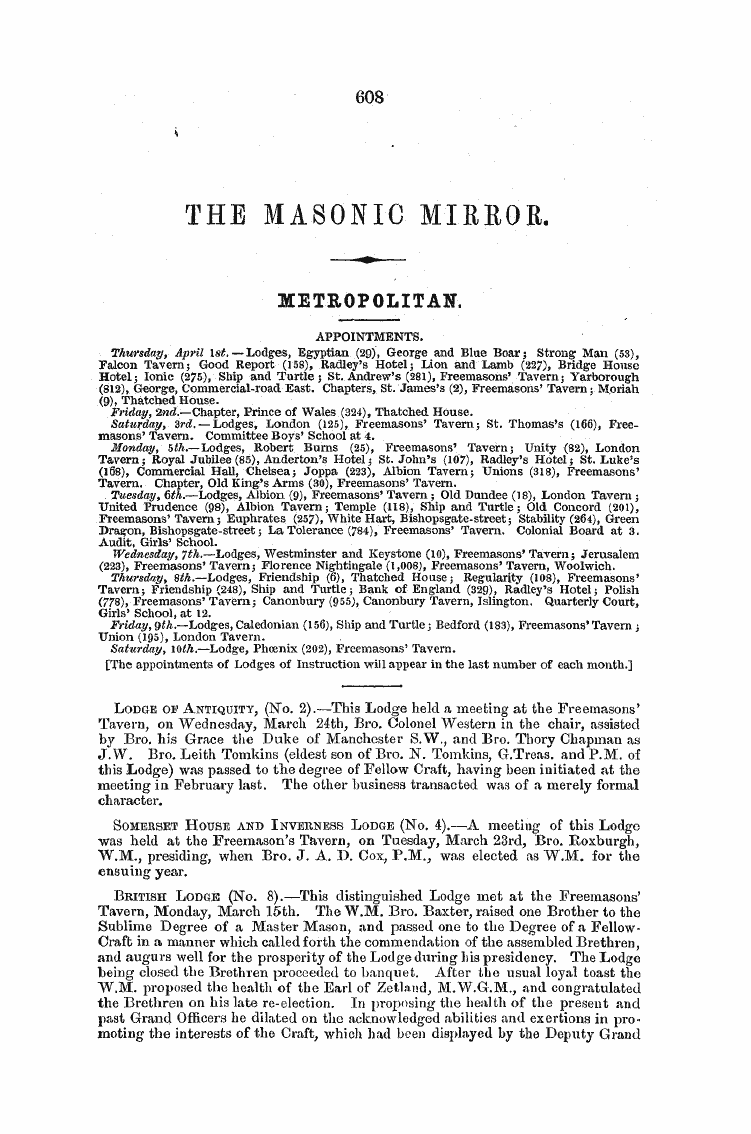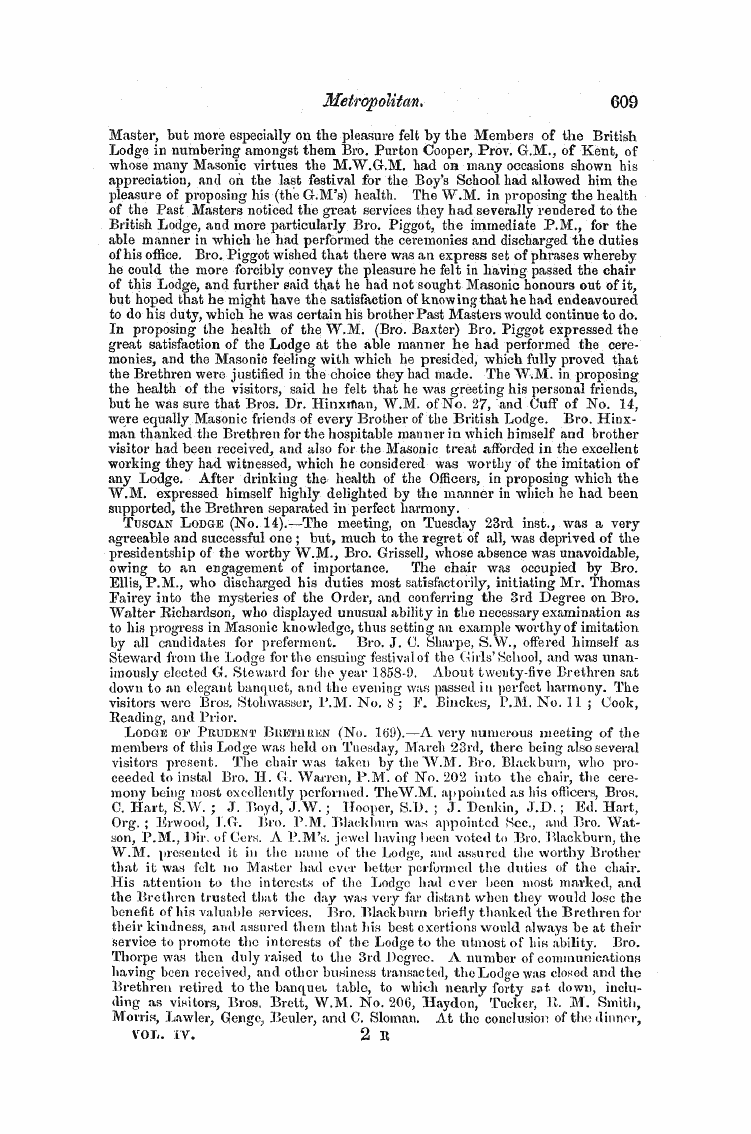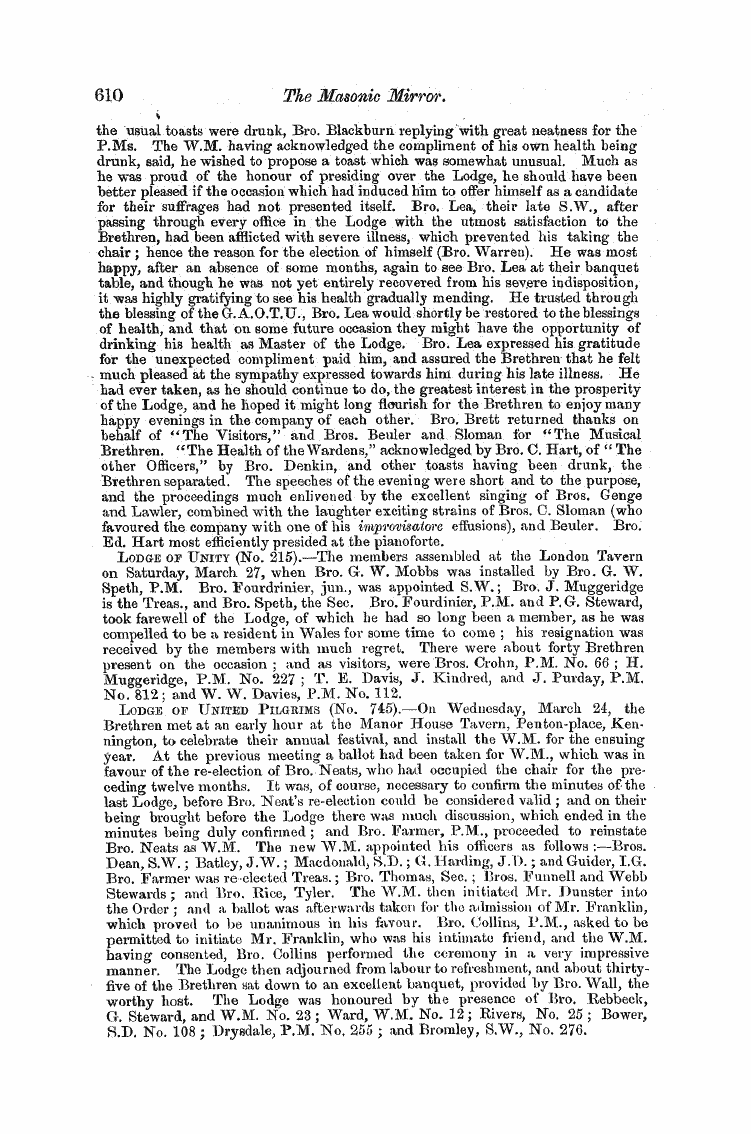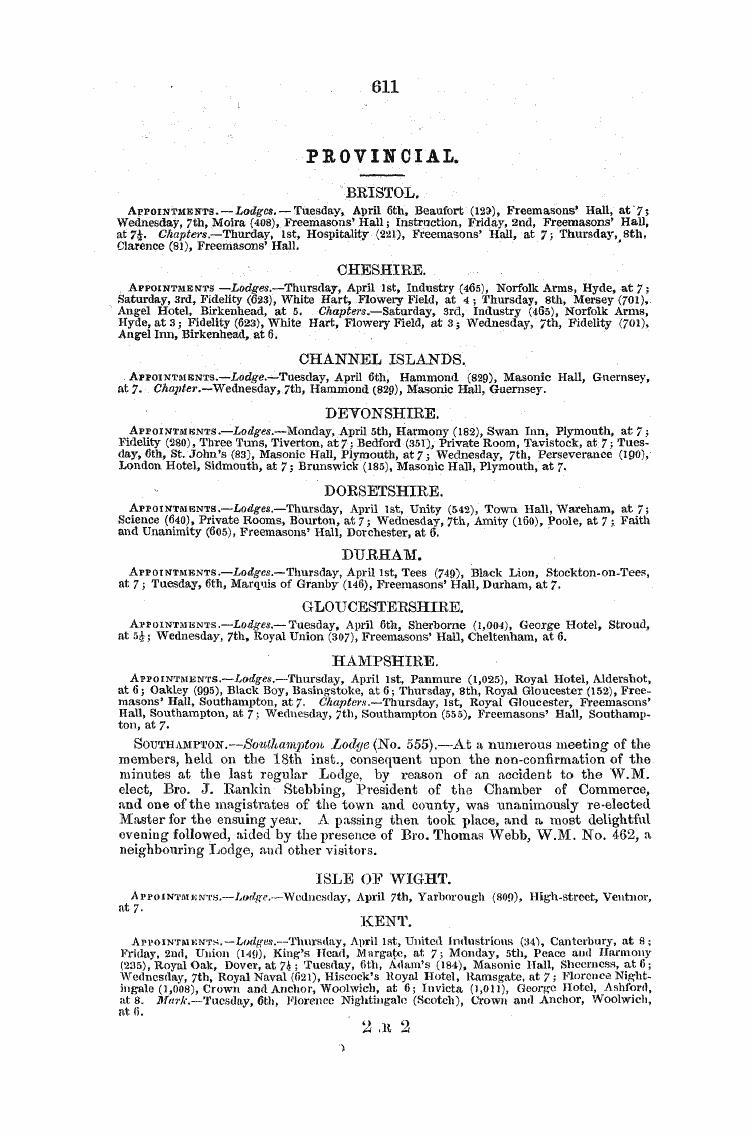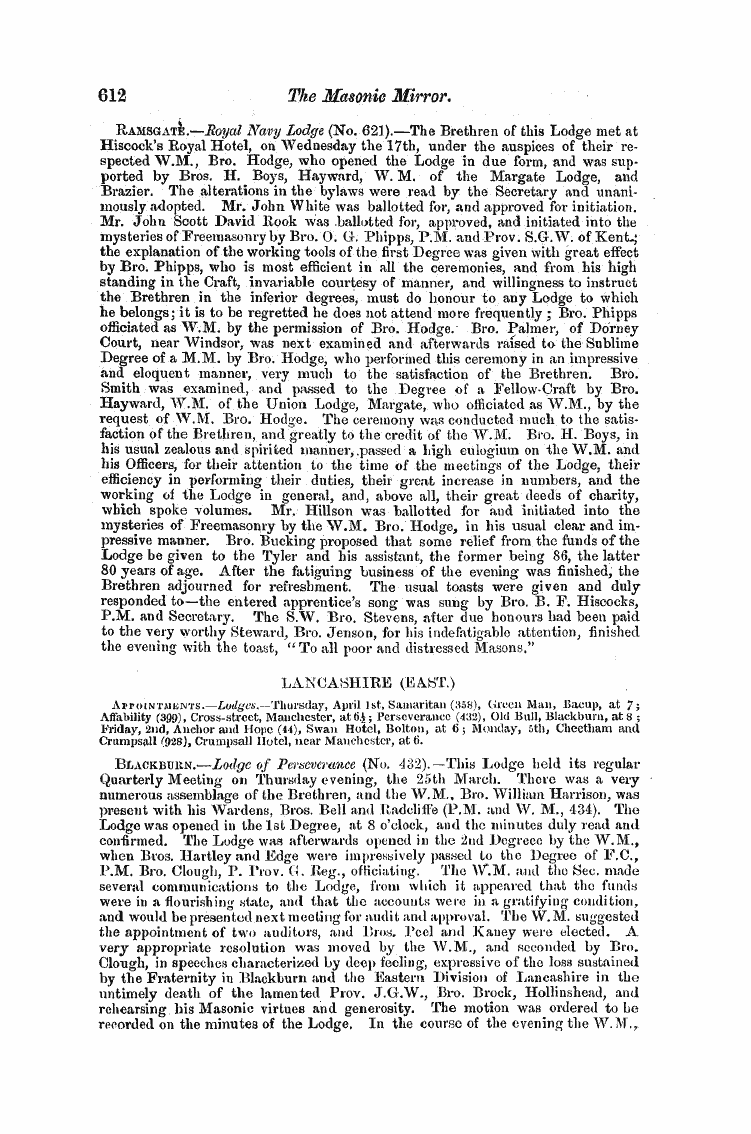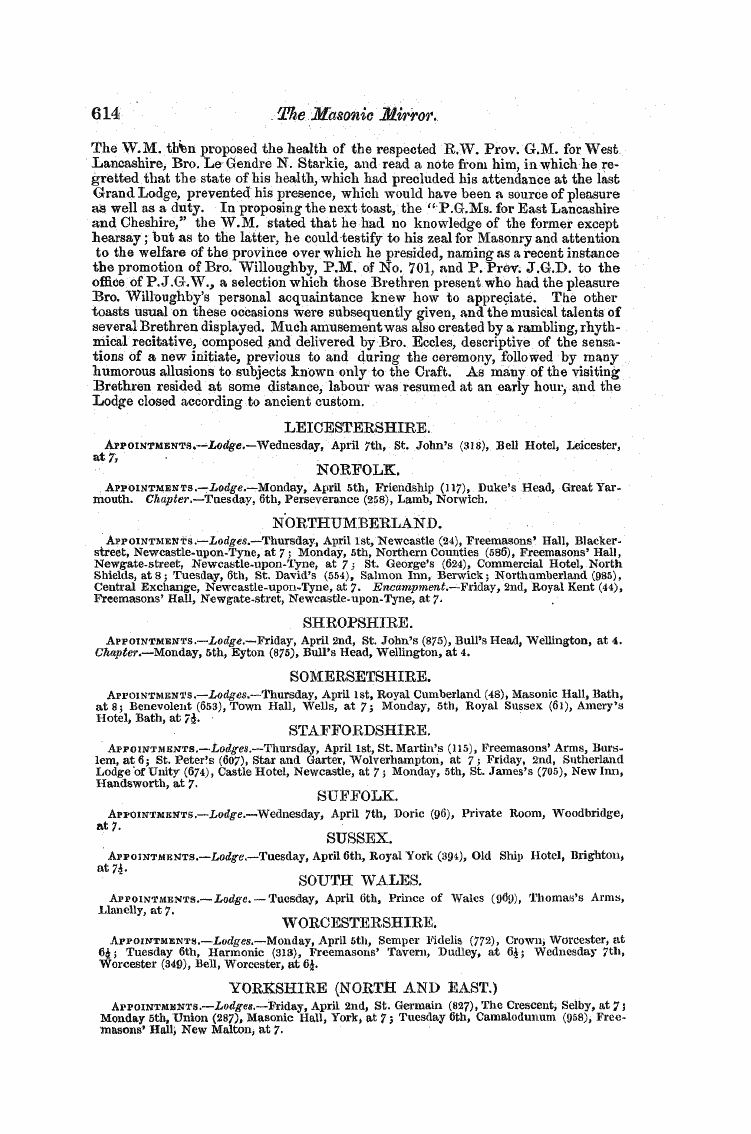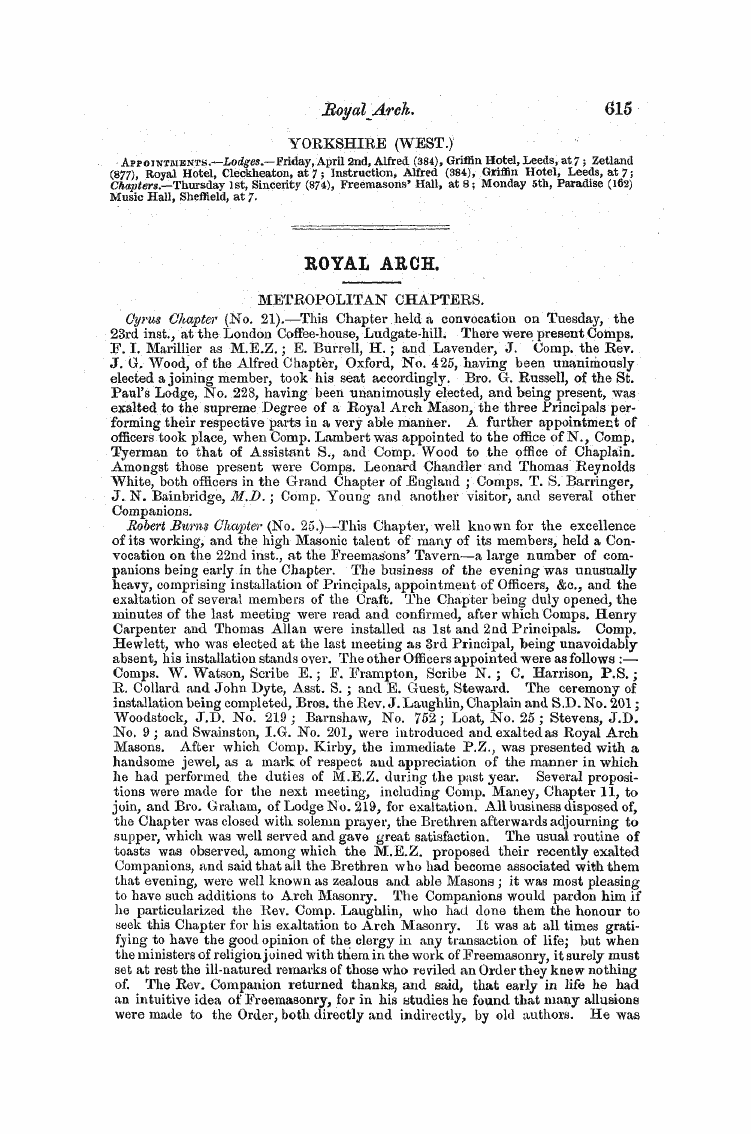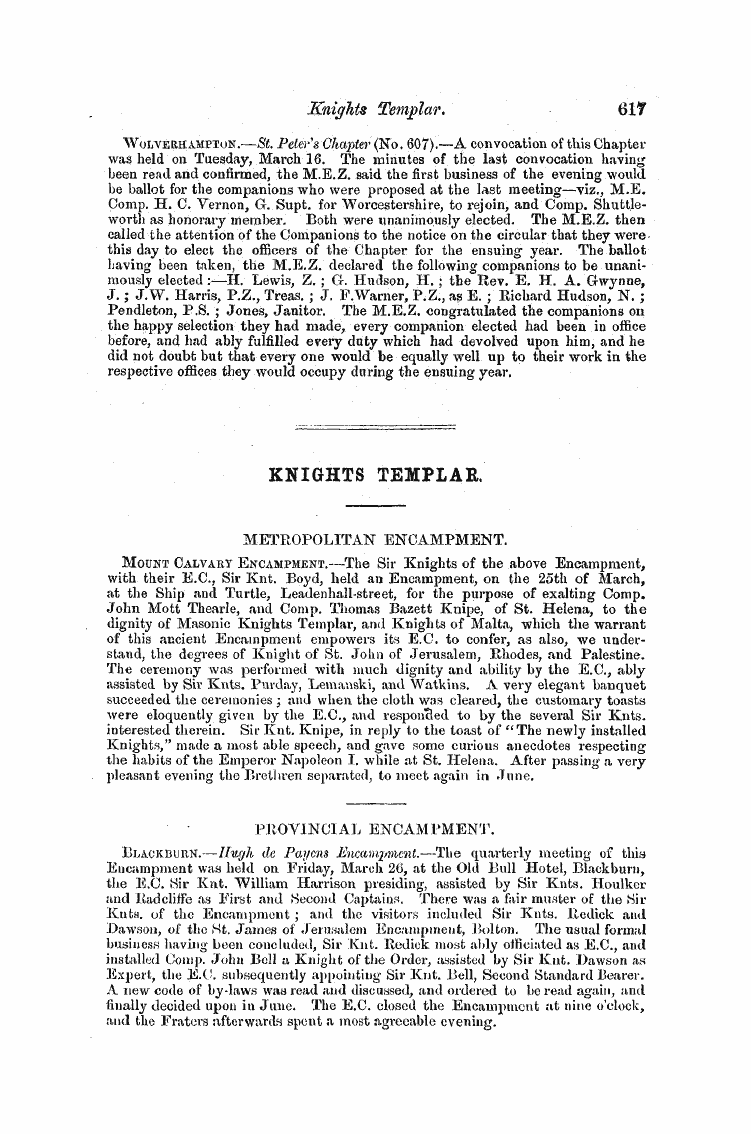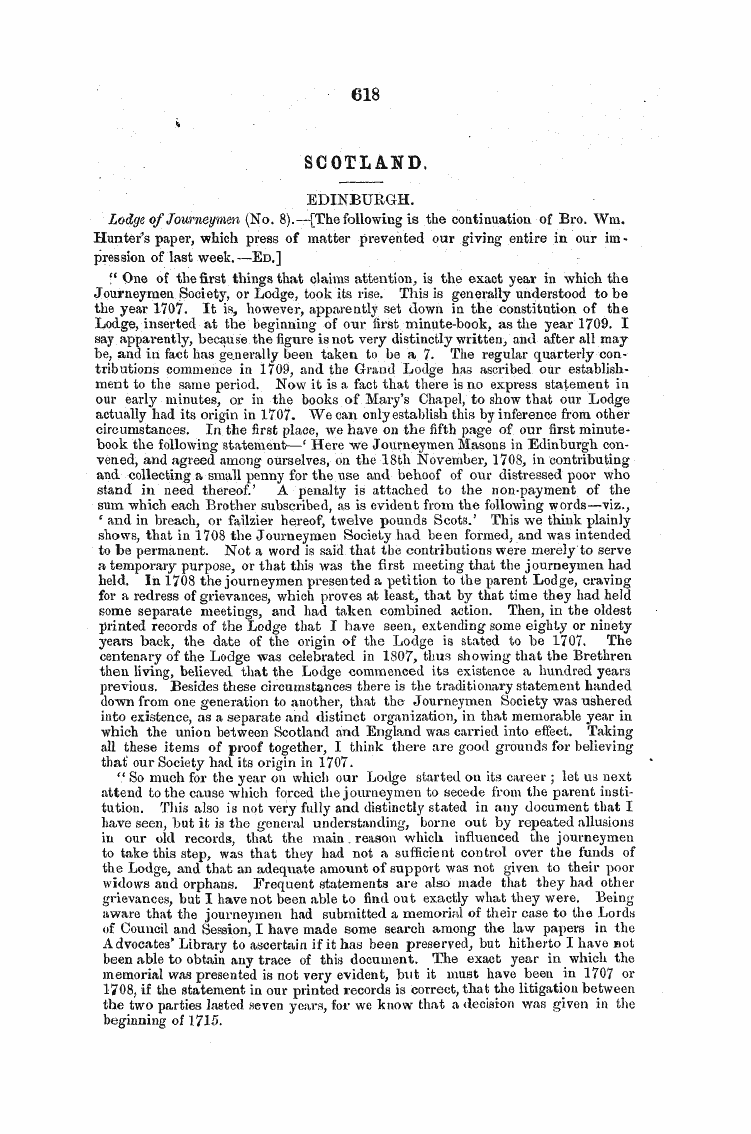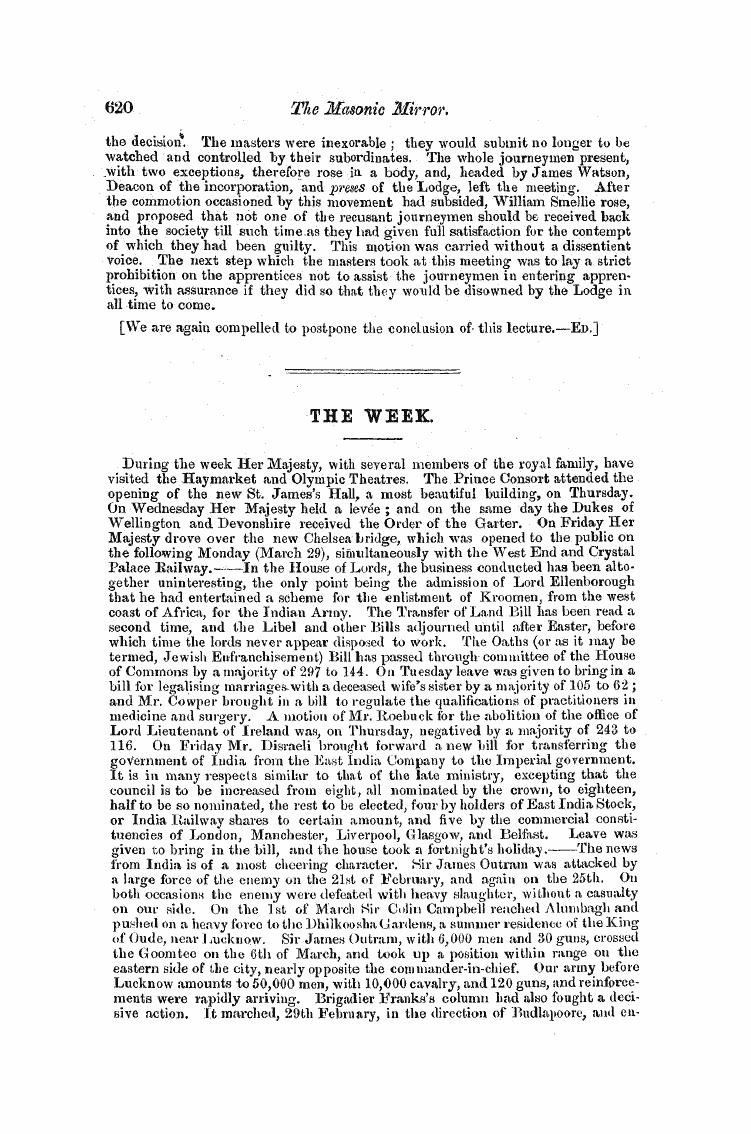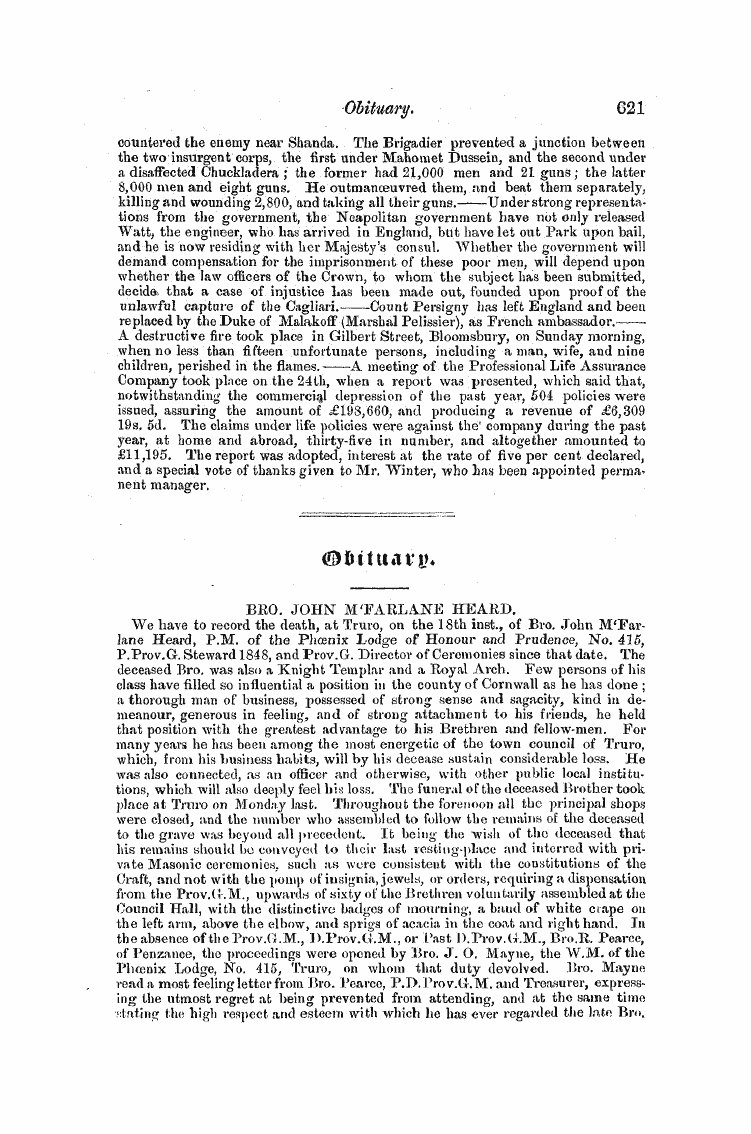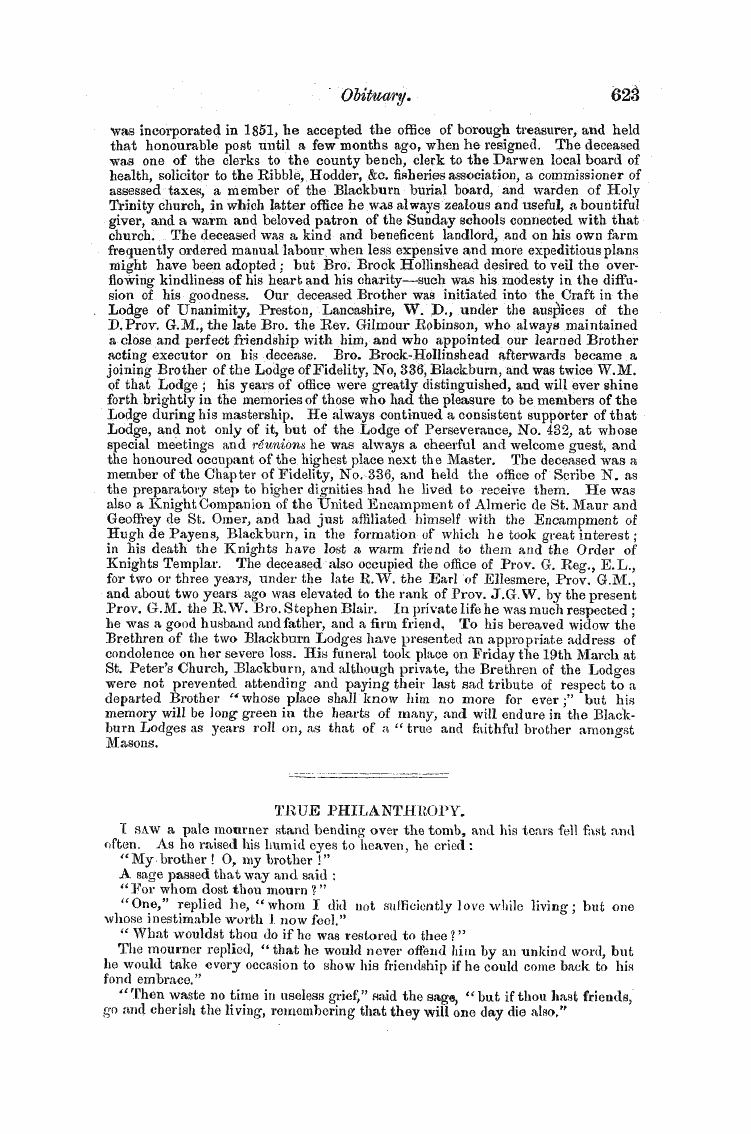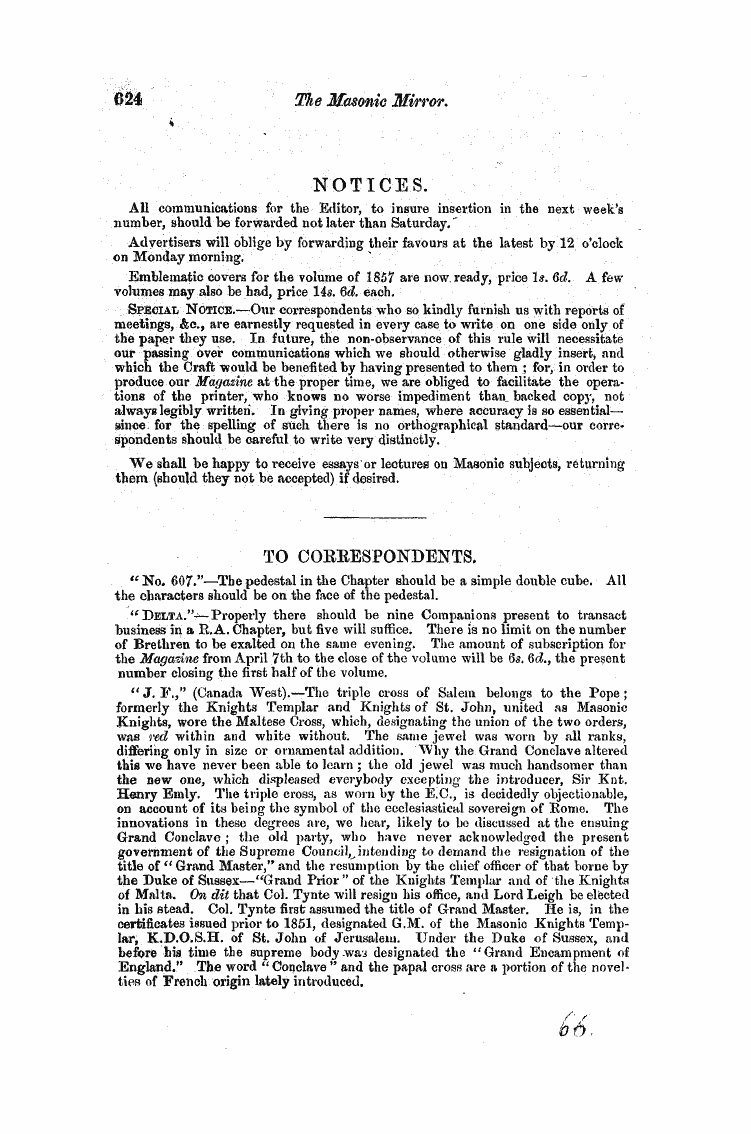-
Articles/Ads
Article COIRESPGNDENCE. ← Page 3 of 11 →
Note: This text has been automatically extracted via Optical Character Recognition (OCR) software.
Coirespgndence.
of'Christianity under the apprehension of giving offence to the idolatrous Hindoos and Mahomedahs—" we are co-wards in the si ^ htof-niari , and traitors in the sight of God . "
We are assured by Mn Montgomery > that " in Hindostan the native Christians as a body have , with rare exceptions , been set aside . I know not one in the Punjab ( to out * disgrace be it said ) in any employment under government ; a proposition to employ theni in the public service six months ago would assuredly have been received with coldness , and would not have been complied with . "
Now I cannot take on myself to assert that the officers of our Grand Lodge are appointed on a similar principle of exclusiveness , because I am really ignorant of their peculiar Masonic faith ; hut we all do know that when the late Bro . Tucker asserted in his Provincial Grand Lodge the Christian tendency of Freemasonry , the late Grand Secretary ( whose letter is before me in which the reasons are assigned for dismissing him frond office ) pronounced the doctrine to be " historically incorrect ! " And he added , that though any brother is " at full liberty to promulgate what doctrines he pleases out of Lodge , he has no authority—in fact it is penal—to do the same when the Lodge is open . "
Again , if it be a simple neutrality alone that is insisted on , we have a right to claim for Christianity * as a mere exercise of common impartiality , the same privileges as are awarded to the professors of other syterns of faith . But , unfortunate ^ these are not accorded ; for while we are allowed to take our illustrations from Judaism in the references to the Tabernacle and Temple , or from
Paganism , as in the Pythagorean triangle and the summwni bonumof Plato , all allusion to Christianity is strictly forbidden , so far as it may be possible in the absence of penalties ( and we are not aware that a brother out of office is liable to admonition , fine , or exclusion , for asserting the Christian character of Freemasonry ) , under an impression that its claims to universality would be damaged by such a proceeding .
It is clear , however , that Masonic universality is an unsubstantial fiction ; and I shall now proceed to show that the acknowledged immutability of Freemasonry , added to the peculiarity of its construction and the stringent character of its prohibitory laws , makes such an hypothesis not only untenable but absolutely impossible , although its existence is pertinaciously urged by some inconsiderate Brethren of our ' own times , as one of the enduring attributes of the Craft , as
w ell as an impervious landmark , to the degradation , if not to the extinction , of our holy religion , by reducing it to a level with systems of heresy and error . I cannot conceal from myself that my opinion on this subject may wound the prejudices and paralyse the belief of a certain portion of the Fraternity , but fiat justitia , mat coduni—truth must be maintained although preconceived notions may be difficult to remove ; and I am of opinion that , in the sense which modern induction assigns to it , Feeemasonry is not , and cannot be , universal .
Before proceeding to investigate the truth of this proposition , I would premis " that it is far from my intention to trouble you or the Fraternity with any baseles : or untenable hypothesis of my own , but to place Freemasonry on its true foundation as a moral and scientific institution , divested of all improbable facts and dubious assumptions , that the Craft may neither be misled by the one , nor startled by the other . And if the arguments be defective , the reasoning devoid of proof , or the conclusions do not rest on the firm basis of truth , let them be summarily rejected .
In order to clear the way , let us first examine the arguments which have been advanced in favour of the hypothesis that Masonry is universal . These are , first , the extent of the Lodge ; secondly , the absence of religious creed ; thirdly , the eligibility of all persons for admission , and hence its unbounded influence ; and fourthly , the universal application of its symbols .
1 st . I he extent of the Lodge is considered by the universalists as a triumphant proof of the proposition . The passage is as follows : " How long ?—From the east to the west . How broad?—Between the north and the south . How high ? —From the earth to the heavens . How deep ?— From the surface to the centre . " On a- primd facie view of the argument this reason might appear decisive of the question .- That which is without bounds may be evidently pronounced universal 2 n 2
Note: This text has been automatically extracted via Optical Character Recognition (OCR) software.
Coirespgndence.
of'Christianity under the apprehension of giving offence to the idolatrous Hindoos and Mahomedahs—" we are co-wards in the si ^ htof-niari , and traitors in the sight of God . "
We are assured by Mn Montgomery > that " in Hindostan the native Christians as a body have , with rare exceptions , been set aside . I know not one in the Punjab ( to out * disgrace be it said ) in any employment under government ; a proposition to employ theni in the public service six months ago would assuredly have been received with coldness , and would not have been complied with . "
Now I cannot take on myself to assert that the officers of our Grand Lodge are appointed on a similar principle of exclusiveness , because I am really ignorant of their peculiar Masonic faith ; hut we all do know that when the late Bro . Tucker asserted in his Provincial Grand Lodge the Christian tendency of Freemasonry , the late Grand Secretary ( whose letter is before me in which the reasons are assigned for dismissing him frond office ) pronounced the doctrine to be " historically incorrect ! " And he added , that though any brother is " at full liberty to promulgate what doctrines he pleases out of Lodge , he has no authority—in fact it is penal—to do the same when the Lodge is open . "
Again , if it be a simple neutrality alone that is insisted on , we have a right to claim for Christianity * as a mere exercise of common impartiality , the same privileges as are awarded to the professors of other syterns of faith . But , unfortunate ^ these are not accorded ; for while we are allowed to take our illustrations from Judaism in the references to the Tabernacle and Temple , or from
Paganism , as in the Pythagorean triangle and the summwni bonumof Plato , all allusion to Christianity is strictly forbidden , so far as it may be possible in the absence of penalties ( and we are not aware that a brother out of office is liable to admonition , fine , or exclusion , for asserting the Christian character of Freemasonry ) , under an impression that its claims to universality would be damaged by such a proceeding .
It is clear , however , that Masonic universality is an unsubstantial fiction ; and I shall now proceed to show that the acknowledged immutability of Freemasonry , added to the peculiarity of its construction and the stringent character of its prohibitory laws , makes such an hypothesis not only untenable but absolutely impossible , although its existence is pertinaciously urged by some inconsiderate Brethren of our ' own times , as one of the enduring attributes of the Craft , as
w ell as an impervious landmark , to the degradation , if not to the extinction , of our holy religion , by reducing it to a level with systems of heresy and error . I cannot conceal from myself that my opinion on this subject may wound the prejudices and paralyse the belief of a certain portion of the Fraternity , but fiat justitia , mat coduni—truth must be maintained although preconceived notions may be difficult to remove ; and I am of opinion that , in the sense which modern induction assigns to it , Feeemasonry is not , and cannot be , universal .
Before proceeding to investigate the truth of this proposition , I would premis " that it is far from my intention to trouble you or the Fraternity with any baseles : or untenable hypothesis of my own , but to place Freemasonry on its true foundation as a moral and scientific institution , divested of all improbable facts and dubious assumptions , that the Craft may neither be misled by the one , nor startled by the other . And if the arguments be defective , the reasoning devoid of proof , or the conclusions do not rest on the firm basis of truth , let them be summarily rejected .
In order to clear the way , let us first examine the arguments which have been advanced in favour of the hypothesis that Masonry is universal . These are , first , the extent of the Lodge ; secondly , the absence of religious creed ; thirdly , the eligibility of all persons for admission , and hence its unbounded influence ; and fourthly , the universal application of its symbols .
1 st . I he extent of the Lodge is considered by the universalists as a triumphant proof of the proposition . The passage is as follows : " How long ?—From the east to the west . How broad?—Between the north and the south . How high ? —From the earth to the heavens . How deep ?— From the surface to the centre . " On a- primd facie view of the argument this reason might appear decisive of the question .- That which is without bounds may be evidently pronounced universal 2 n 2

































































































































































































